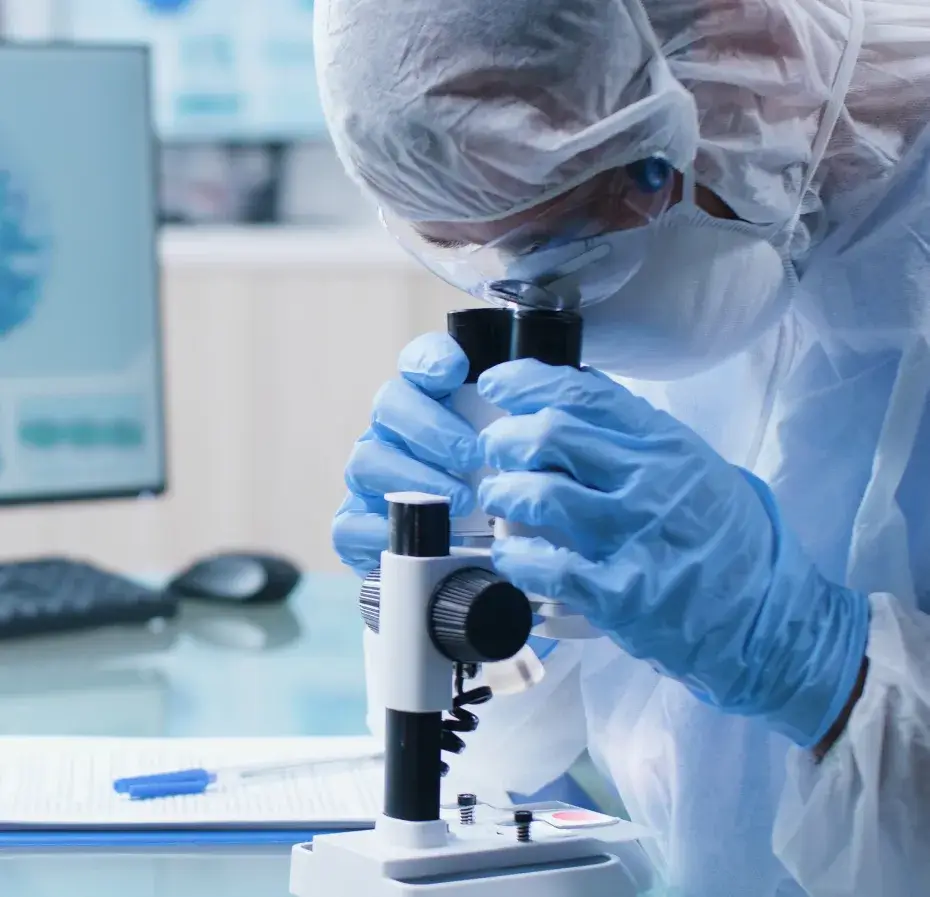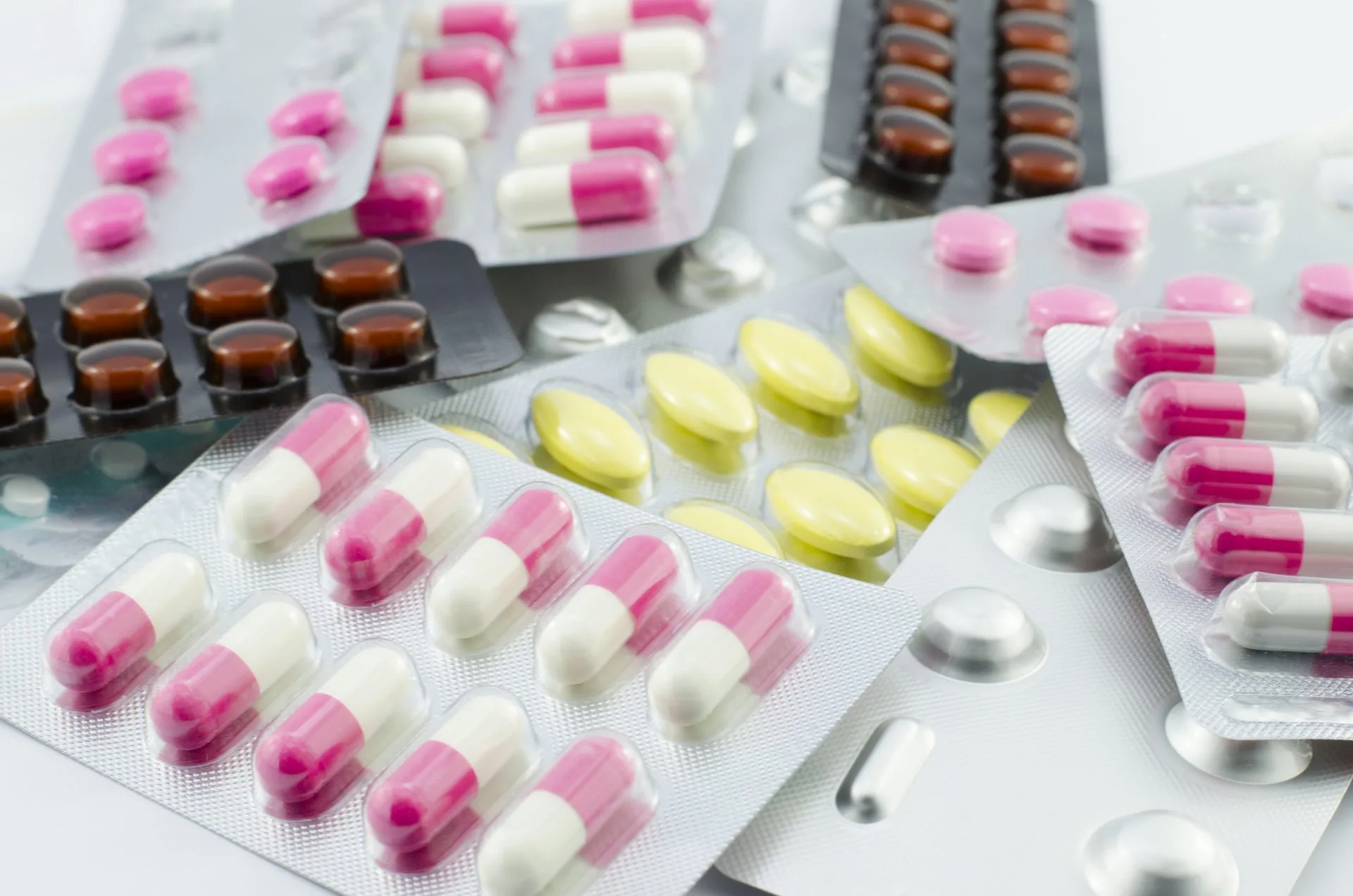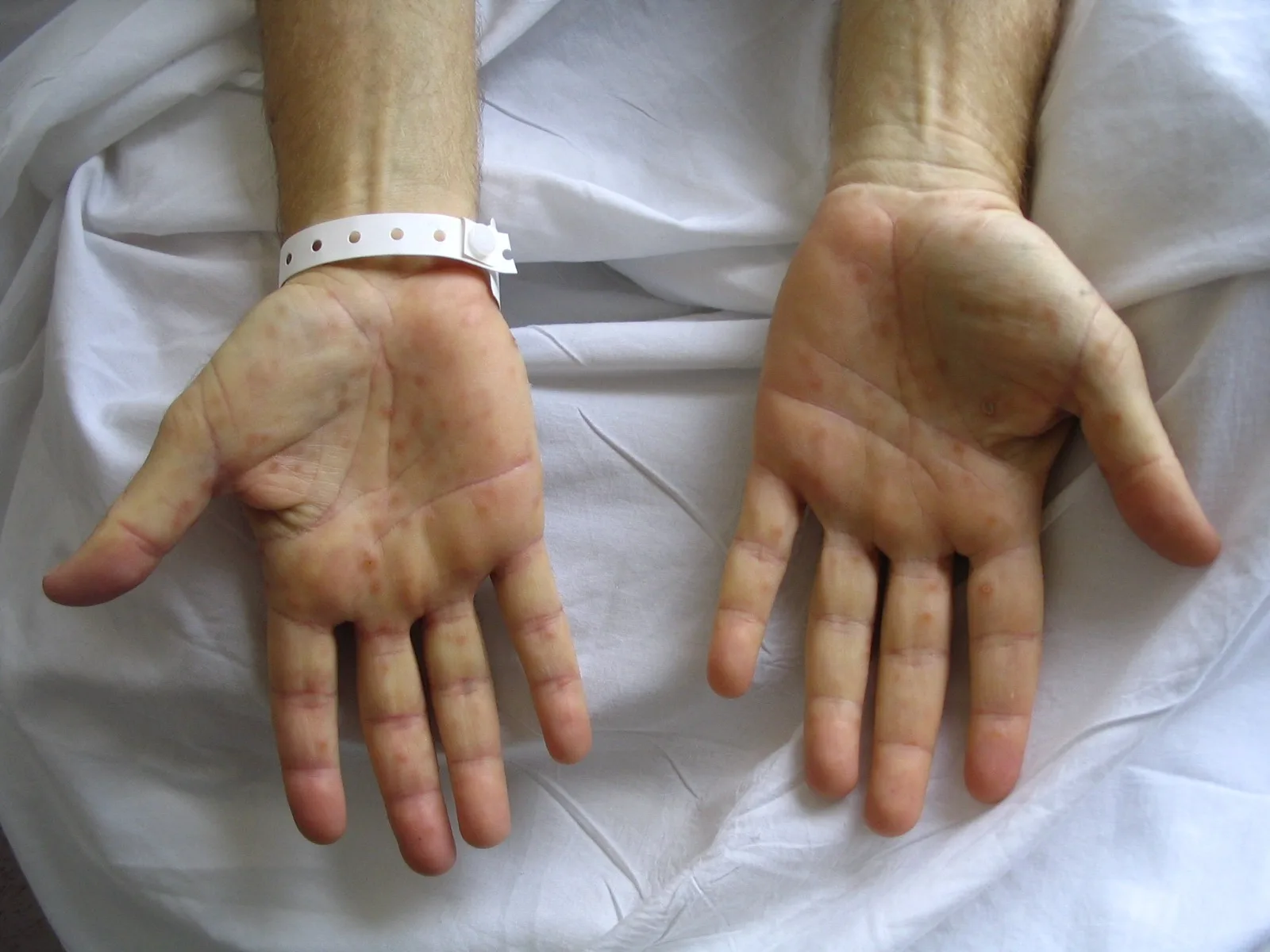How is Syphilis transmitted?
Syphilis is primarily transmitted through direct contact with a syphilitic sore during vaginal, anal, or oral sex. These sores can appear on the external genitals, vagina, anus, rectum, lips, or mouth. Syphilis can also be transmitted from a pregnant mother to her baby, known as congenital syphilis, which can cause severe health problems for the newborn.
Many people with syphilis may not have visible symptoms (asymptomatic) but can still transmit the infection to others. This asymptomatic transmission is particularly concerning because it allows the disease to spread unknowingly.
What are the symptoms of Syphilis?
Syphilis progresses through four stages: primary, secondary, latent, and tertiary, each with distinct symptoms:
- Primary Stage: A single sore or multiple sores at the infection site, usually painless, appearing 3 weeks to 3 months after exposure.
- Secondary Stage: Skin rashes, mucous membrane lesions, fever, swollen lymph nodes, sore throat, patchy hair loss, headaches, weight loss, muscle aches, and fatigue, appearing weeks to months after the primary stage.
- Latent Stage: No visible symptoms, but the infection remains in the body. This stage can last for years.
- Tertiary Stage: Severe medical problems affecting the heart, brain, nerves, eyes, blood vessels, liver, bones, and joints, occurring 10-30 years after the initial infection if untreated.
What are the complications of untreated Syphilis?
If left untreated, syphilis can lead to severe health problems in its later stages, including:
- Damage to the heart and blood vessels (cardiovascular syphilis)
- Neurological problems, including stroke, meningitis, and dementia (neurosyphilis)
- Gummatous syphilis, which involves large sores inside the body or on the skin
- Increased risk of HIV infection and transmission
How is Syphilis diagnosed?
Syphilis can be diagnosed through blood tests that detect antibodies to the bacteria, or through direct examination of material from sores under a microscope. Common diagnostic methods include:
- Nontreponemal Tests: Such as the Rapid Plasma Reagin (RPR) and Venereal Disease Research Laboratory (VDRL) tests, which detect antibodies produced in response to the infection.
- Treponemal Tests: Such as the Fluorescent Treponemal Antibody Absorption (FTA-ABS) test and the Treponema pallidum particle agglutination assay (TP-PA), which confirm the diagnosis.
- Rapid Tests: Rapid fingerprick tests that provide quick results and are useful in settings where laboratory testing is not available.
How is Syphilis treated?
Herpes (HSV) is treated with antiviral medications. These medications help reduce the severity and frequency of symptoms but do not cure the infection. Common treatments include:
- Antiviral medications: Drugs like acyclovir, valacyclovir, and famciclovir can reduce the severity and duration of symptoms.
- Suppressive therapy: Daily antiviral medication can help prevent recurrent outbreaks and reduce the risk of transmitting the virus to others.
- Episodic treatment: Antiviral medication taken at the onset of symptoms can shorten the duration of an outbreak.
Can Syphilis be prevented?
Yes, herpes simplex virus (HSV) can be prevented through a combination of safer sex practices and regular health monitoring:
- Use Condoms: Consistently using condoms during sexual activity can reduce the risk of transmission, though it does not completely eliminate it.
- Avoid Sexual Contact During Outbreaks: Refrain from sexual activity when symptoms or sores are present to minimize the risk of spreading the virus.
- Regular STI Screenings: Routine screenings can help detect infections early and prevent transmission to partners.
- Open Communication: Discuss HSV status and risks with sexual partners to make informed decisions about precautions and treatment options.
- Antiviral Medication: Taking antiviral medication as prescribed by a healthcare provider can reduce the frequency of outbreaks and the risk of transmission.


